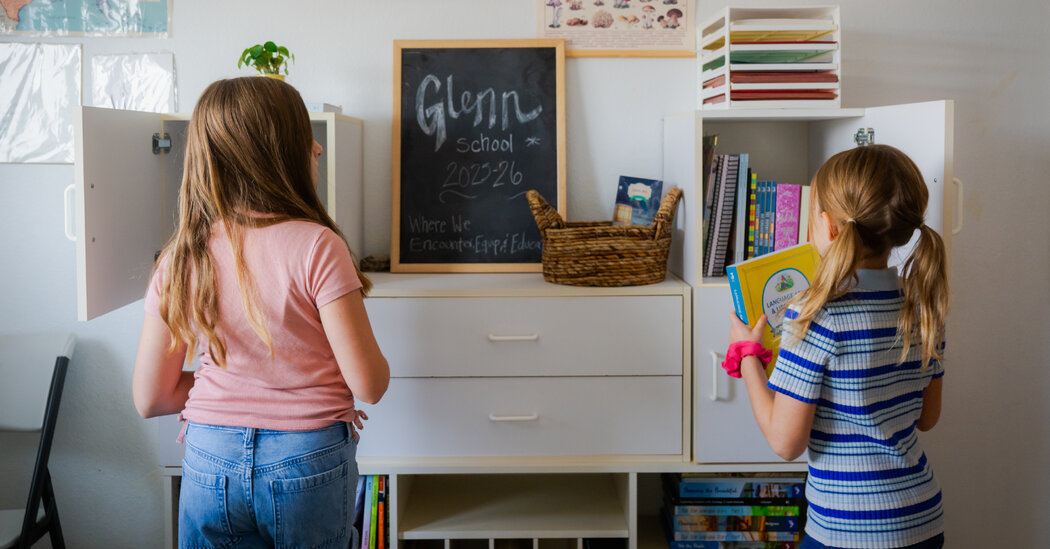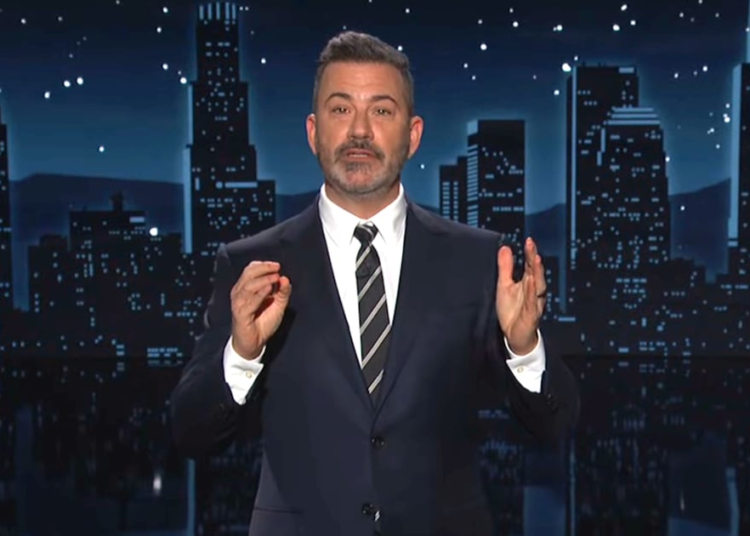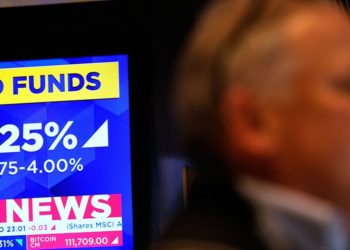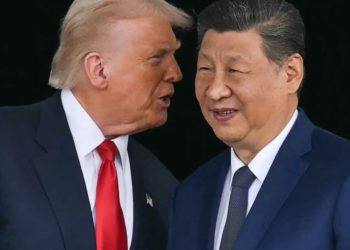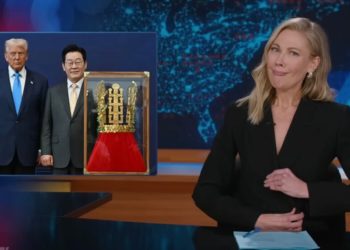Before the Covid pandemic hit in 2020, public health experts would often say that vaccines had been victims of their own success.
People had simply forgotten how polio and measles could wreak havoc on Americans’ daily lives. If these diseases started surging again, experts said, parents would be scared straight.
This year, that prediction proved wrong.
Few minds were changed, even after the largest measles outbreak in the United States since 2000 hopscotched through unvaccinated communities, infecting hundreds and killing two young girls in Texas.
Texas was not a random epicenter for such an outbreak.
The percentage of kindergartners who have had measles shots in the state has fallen to 93.2 percent in the 2024-2025 school year from 96.9 percent in 2019 — slipping below the 95 percent threshold that guarantees broad immunity.
With loosened childhood vaccination laws, the portion of kindergartners without all their recommended immunizations has nearly doubled over the past five school years. About 25,000 kindergartners, more than in any other state, didn’t have at least one of their measles shots in early 2025, when the virus began to spread through the state.
In interviews with parents across Texas who oppose vaccinating their children, virtually all were resolute in their views. For them, opposition to vaccination is often a top priority, with some families even moving to the state for its more lax policies.
“My deepest condolences, but I can’t stop driving a car just because accidents happen,” said Cee Rose del Castillo, who lives in the Dallas-Fort Worth area. Her three youngest children have not received any vaccines. “I’m not going to be fear mongered over the measles.”
In interviews, parents said they came to their views through podcasts and videos and articles on the internet, which experts say contained disinformation about vaccine safety. Some opposed vaccinations before they had children, others afterward. Regardless, almost all parents said that the Covid pandemic helped reinforce their views.
Erin Stetson, 41, who lives in Hutto, a suburb northeast of Austin, with her husband and three young children, has been skeptical of vaccines since she was a young adult. But she said that the movement grew after the pandemic as people began questioning Covid vaccine mandates and the pharmaceutical companies that made money on them. It “woke everybody up,” she said. More people were asking, “What are we doing? Who are we believing?”
For many, the pandemic merged their anti-vaccination stance with an overarching, anti-establishment view — of the government, medical institutions and public schools.
At the same time, parents in interviews said that it had become more acceptable to be against vaccines, and that their movement was growing. Many said their children were taught at home or at private religious schools, alongside children who have like-minded parents. Some scour social media sites to find breast milk from unvaccinated women. They have found pastors who share their views and medical centers that accommodate their choices.
For many parents, their anti-vaccination stance is part of their religious life. But perhaps nothing is more validating than a shift in government policy. Robert F. Kennedy Jr. now leads the Department of Health and Human Services, a pulpit from which he has sewn further distrust in vaccines. The Texas Republican Party has also eagerly embraced these parents, and raced to loosen rules around vaccines, including outlawing Covid vaccine workplace requirements and proposing a ban on all mRNA vaccines.
This month, Florida announced it would become the first state to end all vaccine requirements, including the slate of childhood immunizations that has been required nationwide for decades.
Any public health campaign to encourage vaccinations now faces not only the challenge of combating the tsunami of disinformation — but also, experts say, the much more difficult problem of stopping what has become a movement with political might.
“There used to be few of us,” said Adan Renteria, 54, a parent who lives in West Texas where the measles outbreak was centered. “Now, a lot more people are open to admitting they don’t support vaccines. More people are coming around.”
Finding Their People
Abdiel Ruiz, who lives near Odessa, had always been wary of vaccines, a view that he said was not influenced by politics. But he has come to fervently believe that they explain why his son, now 8, was diagnosed with autism. Even though medical experts say there is no proven link between vaccines and autism, Mr. Ruiz is haunted by his decision to vaccinate his child.
“My son is not sick — my son is hurt,” said Mr. Ruiz, 47.
Many parents come to their vaccine skepticism like Mr. Ruiz, desperately searching for answers, wanting to make their children well.
Those skeptics had once existed equally on both sides of the political aisle, fueled in part by a debunked 1998 scientific paper linking the measles vaccine to autism.
But after 2015, the anti-vaccine movement in the United States took on a political tinge, when a measles outbreak spread across California, drawing attention to an alarming drop in vaccination rates in liberal enclaves like Santa Monica and Marin County.
The outbreak prompted California to pass a law that year prohibiting parents from opting out of vaccines because of their personal or religious beliefs. Only a medical condition could exempt a child from the shots.
To some, vaccination appeared to become a political issue, instead of something a neutral public health department might keep tabs on, said David Jones, a City University of New York professor who studies the politicization of vaccines.
And conservatives in particular, he said, began doubling down against vaccine mandates, perhaps because some churches opposed the vaccines, and they were concerned about government restricting religious freedom.
“All of a sudden there’s a connection,” he said.
By 2024, a clear partisan divide had emerged: 63 percent of Democrats believed vaccines were extremely important, compared with 26 percent of Republicans, according to Gallup.
Today, “politics is the best predictor of vaccination — not your health, not your wealth, not anything,” said Matthew Motta, a health policy professor at Boston University.
Ms. del Castillo, who has seven children from age 7 to adults in their 30s, started questioning vaccines around 2005 when living in California. One child at six months, she said, started seizing after a vaccine, and she said medical professionals did not take her concerns seriously enough.
Some vaccines, including for measles, can cause fever-induced seizures in children, but seizures don’t cause permanent harm, according to the American Academy of Pediatrics. In rare cases, vaccines can cause serious side effects. Some, for instance, have been linked to a very low risk of Guillain-Barré syndrome, a neurological condition.
Ms. del Castillo’s beliefs were cemented in 2014, when she said she met Mr. Kennedy, who was then a leading left-wing anti-vaccination activist, and watched the film “Trace Amounts,” which promoted the disproved theory that vaccines can cause autism. She linked that explanation to other illnesses her first four children developed.
“It was just an epiphany,” she said.
She did not immunize her three youngest children, and said she was “treated like a monster.” At a mothers’ group meeting, she said, a parent backed away with her child when Ms. del Castillo expressed ambivalence about vaccines.
“It was like biblical times when people used to step away from leprosy,” she said. “I went home crying.”
In 2020, Ms. del Castillo’s family moved to Texas.
Covid’s Effect
The pandemic supercharged vaccine skepticism.
Though the Covid vaccine is widely considered a miracle of scientific achievement, it unleashed furious opposition in the United States, because it was developed quickly and made mandatory at many workplaces and schools.
That resistance disproved the longstanding idea that vaccines had merely been victims of their own success. Here was a pandemic, which killed millions of people, and a vaccine that dramatically reduced the risk of death — and many still rejected the vaccine.
In fact, the skepticism incited by the Covid vaccine appears to have increased doubt around routine childhood immunizations, which have been falling nationwide since 2020 and threaten to erode the nation’s collective immunity for diseases like measles and polio.
“It’s pretty clear that there’s a big spillover from how you feel about Covid vaccines to the childhood schedule,” said Alison Buttenheim, a behavioral health expert at the University of Pennsylvania. “Our herd immunity is a national asset, and we’ve worked really hard, we’ve invested a lot to create it and nurture it and to build it up, and it’s at risk.”
Mr. Renteria, from the Odessa area, had not thought too much about immunizations until Covid. His children, now in their 20s, all received their recommended vaccines when they were young.
But he began to wonder how such a complicated vaccine could be developed so quickly. And in 2022, when his employer of two decades, a global oil-field services company, began requiring workers to vaccinate or pay a penalty, he quit.
He began listening to podcasts that cast doubts on the shots.
He soon questioned every vaccine and the medical field in general, he said. If his children were young today, he said he would not immunize them.
Experts say they worry that immunization rates for once-common childhood diseases, which have been dropping since the pandemic, are likely to only fall more with Mr. Kennedy espousing similar views, experts say.
“I have had a lot of people calling me, pediatricians and others, saying ‘It’s never been this bad,’” said Paul Offit, pediatrician and director of the Vaccine Education Center at Children’s Hospital of Philadelphia.
Mr. Kennedy, he said, “justifies the fear you had in vaccines.”
Deborah Glenn, 38, has chosen not to give her three children — ages 11, 8 and 5 — vaccinations of any kind, and no one in her family received Covid shots.
Ms. Glenn, a functional nutritionist who is against abortion rights, said she read online that some vaccines are made using cells from aborted fetuses. (Some vaccines are grown inside human cell cultures that were derived from two elective abortions in the 1960s, but fetal cells are not in the vaccines.)
Her decision not to get Covid vaccines caused strife with her husband’s relatives, who refused to visit for Thanksgiving. And after the measles outbreak, Ms. Glenn said her pediatrician denied her son care because he had not had the vaccine.
But Ms. Glenn, who identifies as Republican, said she had found a community that aligns with her beliefs. In the Fort Worth area, where she lives, people post on Facebook asking for babysitters who had not had the Covid vaccine. Other new mothers commonly seek breast milk donations from women who were not vaccinated. The pastor of Mercy Culture Preparatory, a school affiliated with a megachurch where the Glenn family worships, boasted on social media that the school had the lowest vaccine rates in the state.
She is excited by Mr. Kennedy’s agenda, including his focus on removing dyes from foods: “I think it’s going to be a game changer.”
Finding Supporters Everywhere
The town of Seminole, in West Texas, became the epicenter of the measles outbreak, which was declared over last month. It has a large Mennonite community known for its reluctance to embrace vaccines and modern medicine.
But more people in West Texas are shunning vaccines, said Cal Hendrick, the Republican mayor of Odessa, who grew skeptical about the Covid shots, but has accepted historically proven vaccines like the MMR for measles.
“People tend to be very independent minded — they’re freethinkers, they do their own research,” Mr. Hendrick said. “Whether you agree or disagree on the vaccines, I personally think it’s a matter of personal opinion.”
The idea that the safety of vaccines is “a matter of personal opinion” can be found throughout the state, including from local officials, medical professionals and the state legislature.
Jeremy Newman, a 32-year-old father of three young children, said when he raised concerns about vaccine safety with his children’s pediatrician, he was “basically kicked out of the practice.”
Mr. Newman, who lives in a town bordering Fort Worth and works for the Texas Home School Coalition, found another doctor in McKinney, who he said helped identify which vaccines were “worthwhile,” including the DTaP vaccine, which protects against diphtheria, pertussis and tetanus. Mr. Newman decided against the others and said he and his wife would continue to follow the doctor’s recommendations.
Elishia Featherston, the owner of True Connections Pediatrics, in a suburb between Dallas and Fort Worth, said that many parents come to her office with doubts about vaccines.
Parents, she said, tell her stories “about how they’ve had to fight to keep their kids from getting a shot.”
Ms. Featherston, a nurse practitioner, said she was trained to follow the guidance of the Centers for Disease Control and Prevention and the American Academy of Pediatrics.
But now, in her private practice, she said she tries to let the patient lead, and offers a “neutral” view on vaccines.
“Informed consent must include the option to decline,” Ms. Featherston said.
Doctors have an ethical responsibility to encourage patients to accept immunization when they can do so safely, according to the American Medical Association’s code of ethics. Other medical organizations, such as the American Academy of Pediatrics, also support the timely use of all vaccines.
But these guidelines may be drowned out by the misinformation that streams through people’s phones and laptops — never mind the growing politicization around the shots.
Terri Burke, who leads a Texas nonprofit that promotes vaccination, said she could not persuade Texas politicians to consider tightening vaccine laws, even as the measles outbreak was raging.
“I couldn’t get a legislator to say the word ‘measles,’” she said. “They think it’s political suicide.”
Edgar Sandoval covers Texas for The Times, with a focus on the Latino community and the border with Mexico. He is based in San Antonio.
Pooja Salhotra covers breaking news across the United States.
Soumya Karlamangla is a Times reporter who covers California. She is based in the Bay Area.
The post In Texas, Parents Fighting Vaccinations Say Their Movement Is Winning appeared first on New York Times.
